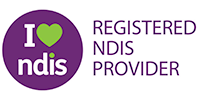Welcome to a thorough introduction to working as a provider for the NDIS (National Disability Insurance Scheme). This article will give you helpful insights, useful suggestions, and critical information to successfully navigate the world of NDIS provision, whether you’re new to the field or trying to increase your expertise. Your support of people with disabilities in living full lives and achieving their goals is essential as an NDIS provider. So let’s dive in and explore all you need to know as an NDIS provider!
What is the NDIS?
The National Disability Insurance Scheme (NDIS) was developed by the Australian government as a national system to offer assistance and services to the disabled. Its goal is to support disabled people in living free lives, contributing fully to their communities, and achieving their objectives. You play a crucial role in ensuring that participants receive the assistance and services they require to enhance their quality of life as an NDIS provider.
Becoming an NDIS Provider
Eligibility Criteria
You must fulfil specific eligibility requirements established by the National Disability Insurance Agency (NDIA) in order to become an NDIS provider. These criteria include:
- Registration: To make sure you meet the requirements, the registration procedure entails a number of processes. An outline of the registration process is provided below:
- Compliance: It is crucial to abide by all applicable laws, rules, and high standards.
- Experience and Qualifications: It’s important to show that you have the knowledge and training necessary to provide the services you wish to market.
- Insurance: You must hold appropriate insurances, including public liability and professional indemnity.
Registration Process
The registration process involves several steps to ensure that you meet the necessary requirements. Here’s an overview of the registration process:
- Application: Submit an online application through the NDIS Provider Registration portal.
- Documentation: Prepare and submit supporting documents, such as your business plan, policies, and procedures.
- Verification: In order to determine your eligibility, the NDIA will analyse your application and accompanying paperwork.
- Audit: A review of your compliance with quality and safety standards will be done, if necessary.
- Approval: Your NDIS provider number and a listing on the NDIS Provider Finder will be sent to you once your application has been approved.
Navigating the NDIS Price Guide
The NDIS Price Guide is a valuable resource for NDIS providers, outlining the maximum prices that can be charged for specific supports and services. It is essential to understand and navigate the Price Guide effectively to ensure you deliver services within the approved pricing limits. Here are some key points to keep in mind:
Service Definitions
That sentence is already in the active voice. If you have any other requests or need further assistance, please feel free to ask.
Support Items
You’ve already expressed the sentence in the active voice. If you have any more questions or need assistance with anything else, feel free to ask. Ensure you select the appropriate support items when claiming for services provided.
Billing and claims
Implement efficient billing and claims processes to accurately claim reimbursements for the services rendered. Adhering to the guidelines will help prevent delays or rejections of claims.
Updates and Amendments
Stay up-to-date with any changes or amendments to the Price Guide to ensure compliance with the latest regulations and pricing structures.
Delivering Quality NDIS Services
As an NDIS provider, delivering high-quality services is paramount to the well-being and satisfaction of NDIS participants. Here are some essential tips to help you provide exceptional support:
Person-Centred Approach
Embrace a person-centred approach by involving NDIS participants in decision-making, setting goals, and tailoring services to their unique needs and preferences.
Effective Communication
Establish open and transparent communication channels with participants, their families, and support coordinators to ensure clear understanding and collaboration.
Continuous Improvement
Regularly evaluate and improve your services based on participant feedback, industry best practices, and the evolving needs of individuals with disabilities.
Qualified Staff
Employ and train qualified staff who are passionate about supporting people with disabilities. Provide ongoing professional development opportunities to enhance their skills and knowledge.
Frequently Asked Questions (FAQs)
Q. What functions do NDIS providers perform?
A: You have a duty as an NDIS provider to assist people with disabilities in achieving their objectives, increasing their level of independence, and overall living better lives.
Q. How can I sign up to become an NDIS provider?
A: You must fulfil the NDIA’s eligibility requirements in order to register as an NDIS provider. This covers standards for registration, compliance, expertise, credentials, and insurance. An application must be submitted, together with supporting evidence, and registration must then go through verification and, if necessary, an audit.
Q. What services can I supply for the NDIS?
A: As an NDIS provider, the services you can provide are based on your training, prior work experience, and the registration groups you have been given permission to join. These offerings may include personal care, therapy services, assistive technology, and assistance with accommodations.
Q. How can I make sure the NDIS services I get are of a high calibre?
A: Using a person-centred approach, maintaining strong communication, updating your services on a constant basis based on customer feedback, and employing qualified staff are all crucial steps to guaranteeing the calibre of your NDIS services.
Q: How can I enhance participant satisfaction as an NDIS provider?
A: You can enhance participant satisfaction by actively involving participants in decision-making, tailoring services to their needs and preferences, maintaining open communication, and providing high-quality support through qualified staff.
Conclusion
Being an NDIS provider is a rewarding and impactful role. You may significantly improve the lives of those with disabilities by being aware of the regulations, utilising the NDIS system, and providing quality services. Continue to learn, strive for progress, and embrace a person-centred approach to ensure the best outcomes for NDIS participants. Now, equipped with all the necessary knowledge, you are ready to embark on your journey as an NDIS provider and create a positive impact within your community!



